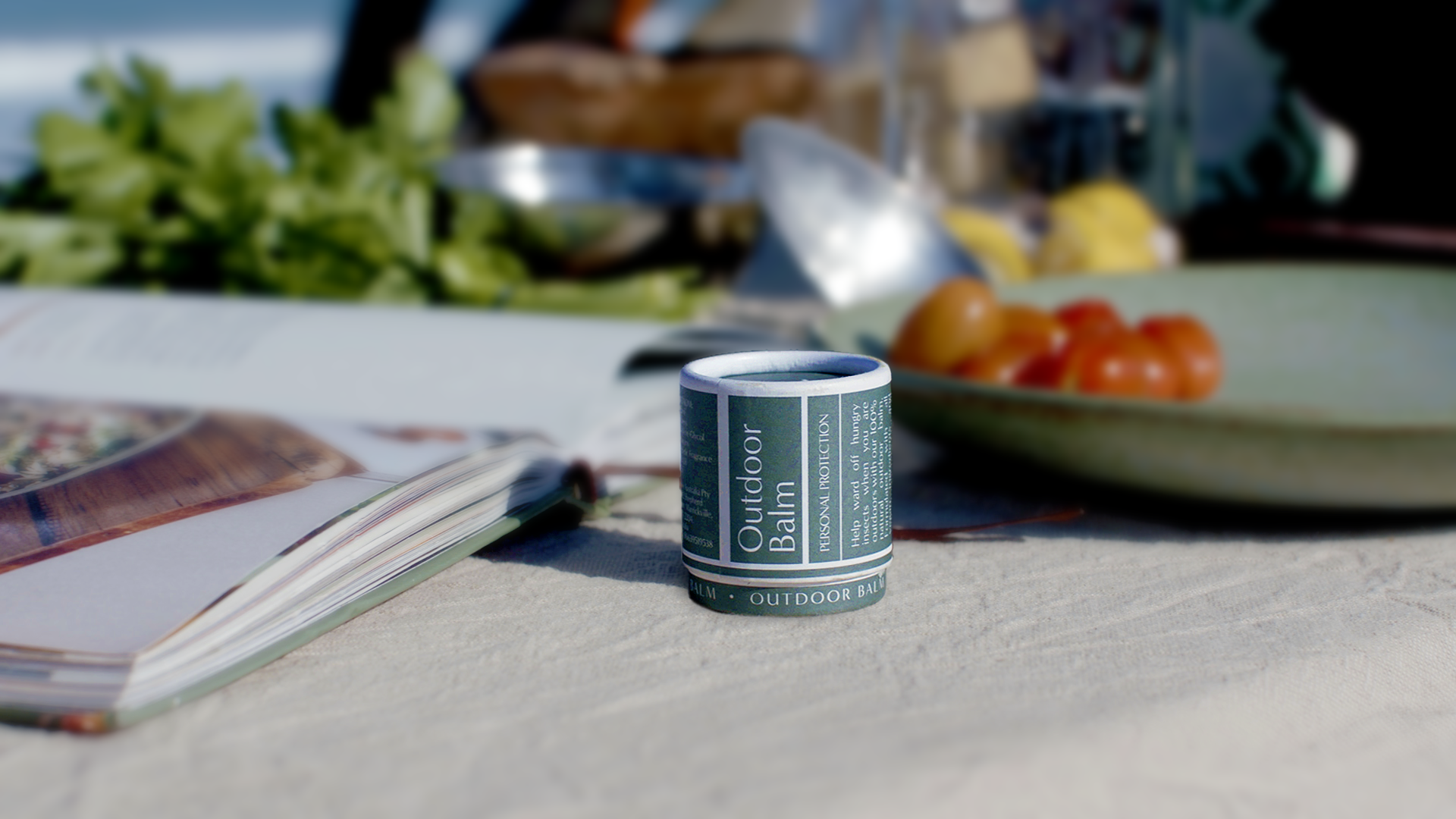
Natural Insect Repellent: Effective and Safe Way Keep Bugs Away
Tired of pesky bugs ruining your outdoor fun? Worried about the harmful chemicals in conventional insect repellents? You’re in the right place! There is a whole world of natural ingredients that provide a safer and eco-friendlier alternative to keep those annoying bugs at bay. Let’s dive into the science behind these natural solutions, explore the power of essential oils, and learn how to choose the right natural insect repellent for you and your family.
Key Takeaways
-
Understanding the science behind natural insect repellents & their potential benefits compared to synthetics.
-
Popular choices for natural bug sprays include citronella, lemon eucalyptus and peppermint oil.
-
Consider ingredients used, duration of protection & expert suggestions when selecting a safe & effective option that suits your needs.
Understanding Natural Insect Repellents

In recent years, there has been a growing interest in natural pest control and insect repellent products, with two-thirds of people preferring them over synthetic alternatives. This is partly due to concerns about the potential side effects of conventional repellents, which can lead to skin irritation and allergic reactions. Natural insect repellents, on the other hand, are made from plant-based materials, such as essential oils and herbs, which are generally safer for sensitive skin, pregnant women, infants, and children.
You may wonder how these natural solutions function and whether they match up to their synthetic counterparts. Let’s delve into the scientific principles underlying natural insect repellents and their advantages.
How do natural insect repellents work?
Natural insect repellents work by masking scents that bugs find attractive, effectively blocking their receptors. Some of the most common natural ingredients used in these repellents are essential oils like citronella, lemon eucalyptus, and peppermint. These scents are not only pleasant for humans, but they also have a strong repelling effect on insects such as mosquitoes, ticks, fleas, and flies.
Certain natural ingredients, like citrus oils, have been proven to be particularly effective against insects. For instance, lemon eucalyptus oil has been recommended by the Environmental Protection Agency (EPA) as a safe and effective insect repellent.
However, bear in mind that the efficiency of natural insect repellents can be influenced by the specific ingredients and their concentration. Therefore, it’s prudent to research thoroughly and select a product that aligns best with your requirements.
Advantages of natural insect repellents
One of the main advantages of natural insect repellents lies in their eco-friendliness and reduced risk of toxicity. Unlike synthetic repellents, which often contain toxic chemicals that can harm the environment and cause allergic reactions, natural repellents use organic ingredients that are generally safer for both humans and the environment. Moreover, some natural insect repellents also contain soothing ingredients like witch hazel, which can help alleviate skin irritation caused by bug bites.
Another advantage of natural insect repellents is that they are often classified as minimum risk pesticides, meaning they are exempt from registration with the EPA due to their low potential for causing harm. However, it’s important to remember that not all natural repellents are created equal, and their effectiveness can vary depending on factors such as the type and concentration of active ingredients used, as well as the specific insects you’re trying to repel. That’s the reason it’s vital to conduct ample research and select a product that has demonstrated effectiveness against the insects you are most likely to encounter.
Essential Oils for Insect Repellent

Essential oils have long been used to keep bugs at bay, thanks to their natural insect-repelling properties. Among the most popular and effective essential oils for insect repellent are citronella, lemon eucalyptus, and peppermint oils. These oils not only provide a pleasant scent, but they also have the ability to deter a wide range of insects, making them a popular choice for those seeking a natural alternative to conventional bug sprays.
Let’s examine each of these essential oils and their benefits more closely, as well as the essential oil blend they create.
Citronella Oil
Citronella oil is a popular natural insect repellent derived from a species of lemongrass. With a fresh, citrusy scent, citronella oil contains active ingredients such as eucalyptus, lemongrass, and peppermint oil that are known to be effective at keeping mosquitoes and other insects away. The oil works by masking scents that attract mosquitoes, making it harder for them to locate their target and preventing them from biting you. In addition to citronella oil, other natural oils like cinnamon oil have also been used for their insect-repelling properties.
Citronella oil is a great natural alternative to synthetic bug sprays, offering an eco-friendly and non-toxic solution to keep insects at bay. However, keep in mind that the efficiency of citronella oil can fluctuate depending on aspects such as the concentration of active ingredients and the specific insects you aim to repel. To guarantee optimal results, always opt for a high-quality citronella oil product and remember to reapply it regularly to maintain consistent protection against mosquitoes and other insects.
Lemon Eucalyptus Oil

Lemon eucalyptus oil is another natural insect repellent that has gained recognition and recommendation from the CDC. Derived from the lemon eucalyptus tree, this oil is both effective at warding off mosquitoes and safe for topical use. In fact, some products containing lemon eucalyptus oil, such as Jao Patio Oil, have been praised for their ability to keep bugs away effectively while being gentle on the skin.
When using lemon eucalyptus oil as an insect repellent, it’s important to follow the directions on the label carefully. Apply the oil directly to your skin, avoiding contact with your eyes and mouth, and reapply as needed to maintain its effectiveness.
By opting for a high-quality lemon eucalyptus oil or thyme oil product and using it as directed, you can relish the beauty of the outdoors without the nuisance of mosquitoes spoiling your experience.
Peppermint Oil
Peppermint oil is a versatile essential oil that has been shown to be effective at repelling and even killing mosquitoes and spiders. Derived from the peppermint plant, this oil has a strong, minty scent that is generally pleasing to humans but repulsive to insects. Studies have also shown that peppermint oil can kill mosquito larvae, making it a valuable addition to your natural insect repellent arsenal.
However, it’s important to note that peppermint oil can be unsafe for skin application if used undiluted. To ensure safety, always dilute peppermint oil with a carrier oil, such as coconut oil, before applying it to your skin. Additionally, make sure to test a small patch of skin before applying the diluted oil to a larger area to avoid any potential allergic reactions.
Adopting these precautions helps to use peppermint oil safely and effectively to repel mosquitoes, deter mosquito bites, and keep other insects away.
Choosing the Right Natural Insect Repellent
With so many natural insect repellents on the market, it can be overwhelming to choose the right one for your needs. To make an informed decision, it’s important to consider factors such as the type of insects you want to repel, the duration of protection, and the ingredients used in the repellent.
In the ensuing sections, we’ll delve deeper into these factors and offer some expert-endorsed natural bug spray suggestions to aid you in making the most suitable choice for your circumstances.
Factors to Consider
The type of insects you want to keep away largely depends on your location and the time of year. Generally, natural insect repellents can help keep mosquitoes, ticks, fleas, and flies at bay. However, it’s worth noting that the effectiveness of these repellents can vary depending on the specific ingredients and their concentration. For example, lemon eucalyptus oil has been recommended by the EPA as a safe and effective insect repellent, while other natural ingredients like citronella and peppermint oil may be less effective against certain insects.
Another important factor to consider when choosing a natural insect repellent is the duration of protection. Some repellents can offer up to 8 hours of protection, while others may only last a few hours. When selecting a repellent, make sure to:
-
Read the label
-
Choose a product that provides the desired level of protection for your specific needs
-
Reapply the repellent as needed to maintain its effectiveness throughout your outdoor activities.
Expert-Approved Natural Bug Sprays
When it comes to expert-approved natural bug sprays, there are several options that are both effective and safe for use on skin, clothing, and even pets. Some of these sprays contain a blend of essential oils like citronella, lemon eucalyptus, and peppermint, which have been proven to effectively repel insects. Other sprays may include additional plant-based ingredients, such as garlic, cedarwood, and neem oil, to provide added protection against insect bites.
One example of an expert-approved natural bug spray is Waste Free Insect Repellent from Biode, which is an eco-friendly and effective solution that minimizes waste and environmental impact. By researching and considering the various options available, you can find a natural bug spray that meets your specific needs and preferences while keeping those pesky insects at bay.
Tips for Safe and Effective Use of Natural Insect Repellents
For the safe and effective use of natural insect repellents, adhering to appropriate application and storage guidelines is crucial. Here are some tips to follow:
-
Always read the label of the repellent and follow the directions for use.
-
Apply the product to exposed skin and clothing for maximum protection.
-
Reapply the repellent as needed, especially after swimming or sweating, to maintain its effectiveness.

In addition, store your natural insect repellent in a dark-colored bottle or spot to help preserve its potency and extend its shelf life. Abiding by these tips enables you to enjoy the wilderness without the concern of annoying insect bites.
Waste Free Insect Repellent From Biode
Waste Free Insect Repellent from Biode, also known as Biode Outdoor Balm, is a vegan and cruelty-free natural bug spray made with a blend of citronella, lemon eucalyptus, and peppermint oils. This eco-friendly and effective solution not only helps keep insects at bay but also minimizes waste and environmental impact, making it an excellent choice for those looking to protect themselves and the planet.
When using Biode Outdoor Balm, be sure to follow the directions on the label, applying the product to exposed skin and clothing for optimal protection. Reapply the balm as needed to maintain its effectiveness, especially after swimming or sweating.
Choosing Waste Free Insect Repellent from Biode allows you to appreciate the outdoors without the concern of insect bites or the environmental repercussions of traditional bug sprays.
Summary
In conclusion, natural insect repellents offer a safer and more eco-friendly alternative to conventional bug sprays, providing effective protection against mosquitoes, ticks, fleas, and flies. Essential oils such as citronella, lemon eucalyptus, and peppermint have been proven to be effective at repelling insects, while also offering a pleasant scent for users. By considering factors like the type of insects you want to repel, the duration of protection, and the ingredients used in the repellent, you can choose the right natural insect repellent for your needs. So, go ahead and embrace the great outdoors, confident in the knowledge that you’re protected from pesky insects and contributing to a healthier planet.
Frequently Asked Questions
What is the most effective natural insect repellent?
Lemon eucalyptus oil is the most effective natural insect repellent. Used since the 1940s, it has been approved by the Centers for Disease Control and Prevention (CDC) as an effective ingredient in mosquito repellent. Citronella and other essential oils are also known to be effective against insects.
What smell do insects hate the most?
Insects hate the strong scents of rosemary, thyme, citronella, sage, lavender, and peppermint.
What is a good DIY bug repellent?
For a good DIY bug repellent, mix equal parts water and witch hazel, then add lemongrass or citronella oil, apple cider vinegar, isopropyl alcohol and catnip oil. Finally, add lemon eucalyptus or lavender essential oil to the mixture at a ratio of 1 part oil to 10 parts witch hazel. Shake it all together and spray on skin for best results.
What is a natural insect repellent for skin?
Peppermint essential oil, lemon eucalyptus oil, citronella, basil, garlic, mint, bay, lemongrass, and rose geranium are all natural insect repellents for skin that can keep away ticks, spiders, roaches, moths, flies, fleas, beetles, ants, and mosquitoes. Peppermint may even provide complete protection from certain mosquito species for up to three hours.
What are the benefits of using natural insect repellents?
Natural insect repellents are ideal for those with sensitive skin, pregnant women, infants, and children as they are less toxic than synthetic options and are more eco-friendly. These natural repellents are a great choice for those who want to avoid harsh chemicals and protect the environment. They are also safer for those with sensitive skin, pregnant women, infants, and children.







Leave a comment
This site is protected by hCaptcha and the hCaptcha Privacy Policy and Terms of Service apply.